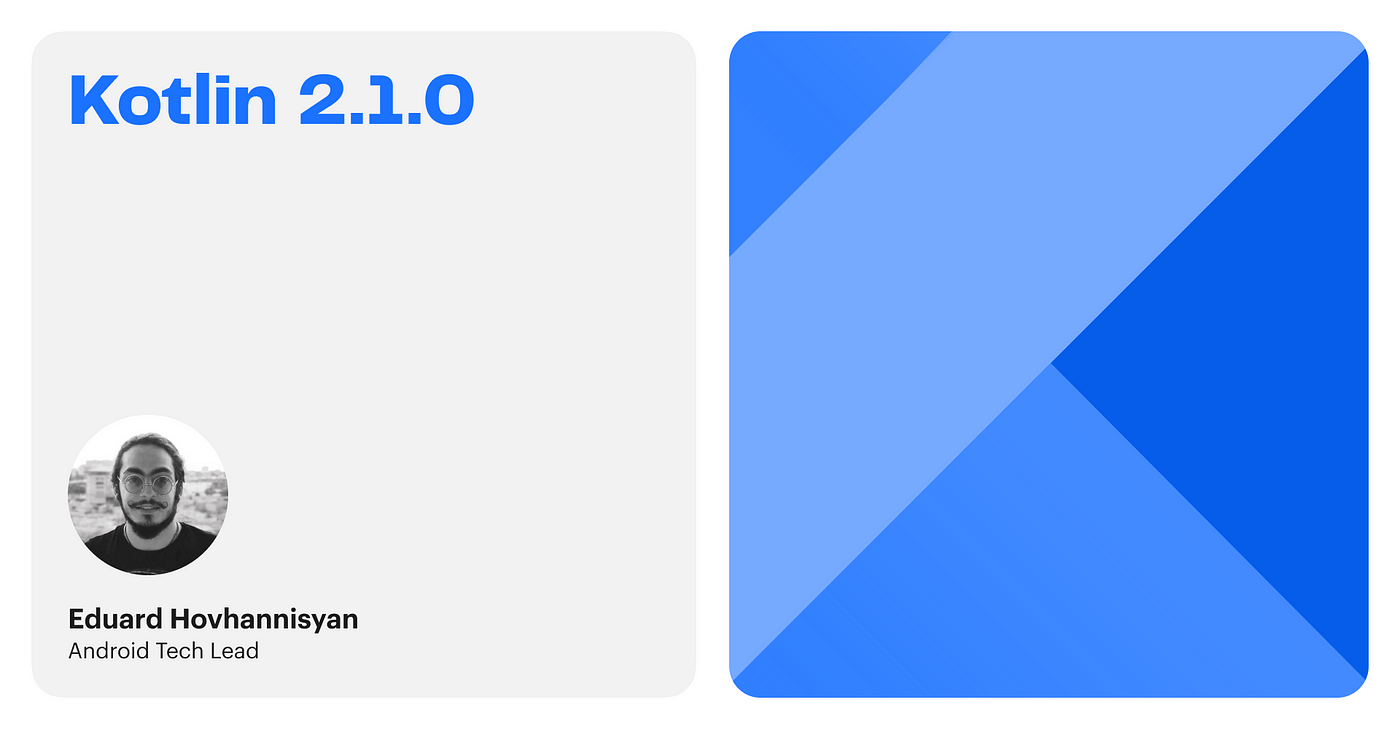Hello everyone! My name is Eduard, and I am an Android Tech Lead at QIC digital hub. In this article, I will share my team’s experience on how to make a smooth transition to Kotlin 2.1.0.

With the release of Kotlin 2.0.0, we decided to switch to it and KSP (Kotlin Symbol Processing) to take advantage of all the performance improvements.
Also, since this is a major update, moving from earlier versions would make it easier to adopt new Kotlin features in the future. In addition, the new K2 version promises significant improvements in performance and compilation time, which is crucial for our project as it continues to grow in both code volume and functionality.
We jumped straight to version 2.1.0 as it was already released when we started our migration, and we would have had to make the switch sooner or later anyway. Here are the steps I can highlight to ensure a smooth transition:
Kotlin 2.0.0 Compatibility Guide: This document outlines changes that may affect your codebase, including source, binary, and behavioral incompatibilities.
Kotlin 2.1.0 Compatibility Guide: Provides a comprehensive reference for migrating from Kotlin 2.0 to 2.1, detailing language changes and their implications.
2. Update Your Development Environment
Integrated Development Environment (IDE): Ensure you’re using the latest version of IntelliJ IDEA or Android Studio that supports Kotlin 2.x.x. For instance, IntelliJ IDEA 2024.1 introduces optional K2 mode, enhancing code analysis. https://blog.jetbrains.com/idea/2024/11/k2-mode-becomes-stable/
Build Tools: Upgrade Gradle and other build tools to versions compatible with Kotlin 2.x.x to prevent integration issues.
3. Enable the K2 Compiler
Kotlin 2.0.0 introduces the K2 compiler, offering improved performance and error detection. It’s enabled by default in Kotlin 2.0.0 and later. Familiarize yourself with the K2 Compiler Migration Guide to understand its benefits and potential impacts.
4. Update Dependencies
Standard Library: Ensure all dependencies are compatible with Kotlin 2.x.x. Some libraries may require updates to align with the new compiler and language features.
Compose Compiler: If you’re using Jetpack Compose, note that the Compose compiler has been merged into the Kotlin repository since Kotlin 2.0.0, simplifying project migration. https://kotlinlang.org/docs/compose-compiler-migration-guide.html?utm_source=chatgpt.com
5. Refactor Deprecated APIs
Kotlin 2.x.x deprecates certain APIs and introduces new ones. Refactor your codebase to replace deprecated functions and align with the latest standards. Consult the official migration guides for specific changes.
6. Issues Encountered During Migration
During the migration process, I encountered some issues that required adjustments:
Minification Issue
Problem: Enabling minification globally across all modules caused unexpected behavior and crashes. More specifically, the release version wasn’t building, likely due to aggressive minification, where many classes were being removed before they were used in other modules
Solution:
Navigation Library Issue
Problem: Updating the Navigation Library to versions 2.8.1+ introduced issues related to navigation state management.
Solution:
Jetpack Compose API Changes
Problem: Minor API changes in Jetpack Compose required adjustments in existing code.
Solution:
Conclusion
Migrating to Kotlin 2.0.0 or 2.1.0 requires careful planning and thorough testing. The main focus should be on:
By following these steps, your project will be able to take full advantage of the latest improvements in Kotlin, while maintaining stability and performance.
Is something missing? Feel free to share your experience in the comments, and together we can make this guide even more useful.